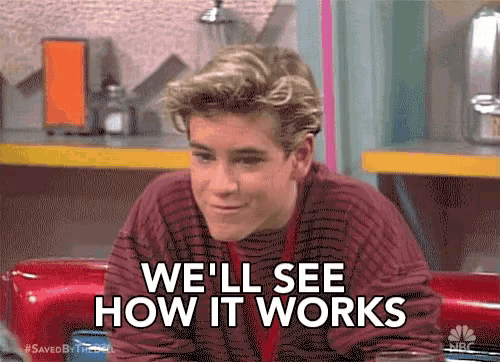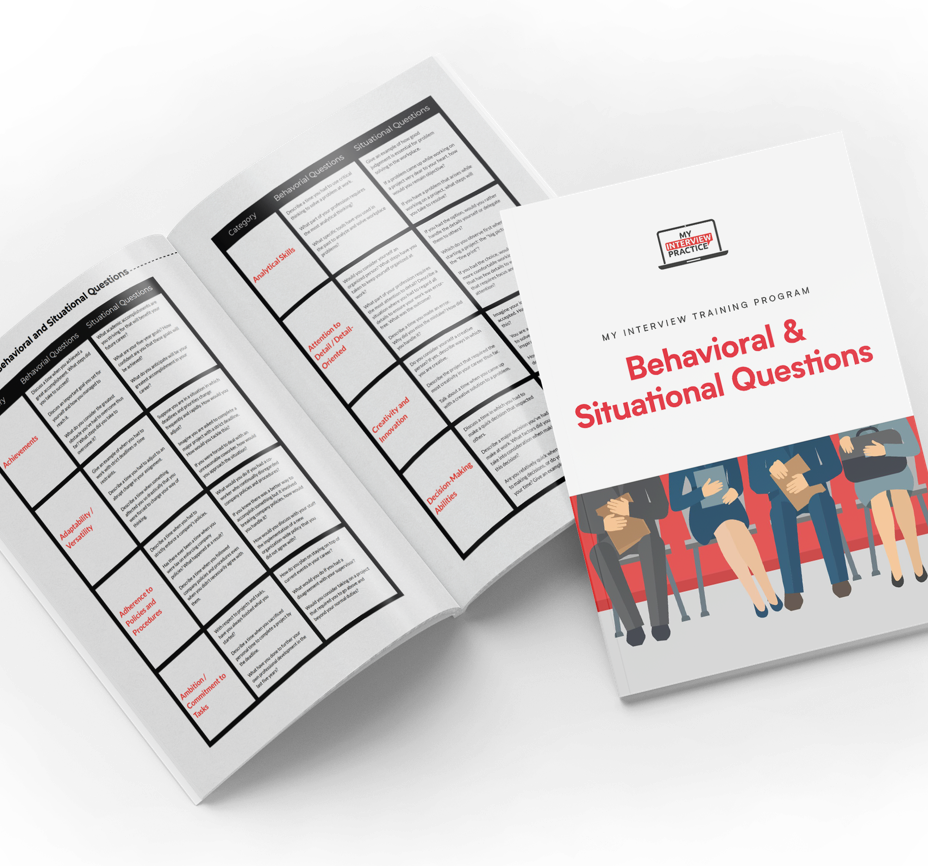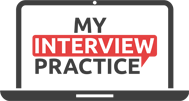80+ Questions To Ask In An Interview [2025 Guide]

Ah, the job interview: your time to shine, impress, and, let’s be honest, sweat just a little. The interview is not just for the employer to toss questions at you – it’s also a golden opportunity for you to get to know the company and figure out if it’s the right fit for your career. So, as much as you prepare for the questions they will ask, you should be equally prepared with questions of your own. And if this seems overwhelming, don’t fret. We’ve got you covered with this ultimate guide to questions you should ask during a job interview.
The Importance of Asking Questions During a Job Interview Interview
It’s tempting to breathe a sigh of relief when the interviewer asks, “Do you have any questions for us?” and respond with a polite “No, you’ve covered everything.” Resist this temptation. Not asking questions can make you appear disengaged, unprepared, or—worst of all—indifferent. Your questions show that you’ve done your homework and that you’re keen as a bean to get the role.
How Many Questions to Ask When Being Interviewed
Asking questions doesn’t mean you stage a full-on interrogation. Three to five solid questions should do the trick, but read the room. If the interviewer seems pressed for time, maybe stick to two or three; if they’re offering you a coffee refill, you might have time for a few more.
Criteria for a Great Question
Demonstrates an Understanding of the Company
Make it obvious you didn’t just Google the company five minutes before walking into the room. Your questions should reveal some depth of knowledge about the company’s mission, culture, and goals.
Highlights Your Positive Attributes
A good question can also highlight your skills without you explicitly having to say, “Hey, look how awesome I am!”
Shows Your Commitment
The “Where do you see yourself in five years?” question isn’t just for them to ask you. Questions about the company’s future show you’re not just looking for a job but a career.
Helps You Stand Out
A unique question can be the cherry on top of the interview sundae, making you memorable amongst a sea of candidates.
Gives You Information You Couldn’t Find Elsewhere
The deepest insights about a company usually aren’t on their website’s FAQ section. Your questions should dig up the insights you need to determine if this opportunity is truly the right fit for you.
Types of Questions to Avoid
Questions About Salary
Pace yourself! Questions about pay, bonuses, and benefits are best saved for after you receive the job offer.
Questions About References or Background Checks
Don’t jump the gun. Asking about these may raise unnecessary red flags.
Questions About Promotions
While ambition is good, you don’t want to look like you’re already angling for your interviewer’s job. Stick to questions about the role you’re actually applying for.
80+ Questions to Ask During a Job Interview
Let’s get down to the nitty-gritty and explore the different types of questions to ask during a job interview.
Questions to Ask About Challenges and Expectations

via Tenor
What tasks or projects will define success in this role?
When you ask this question, you’re essentially asking for the recipe to your own success at the company. This question will not only give you insight into your daily responsibilities but will also provide a snapshot of what the company values. Are they focusing on long-term projects, short-term gains, or a mix of both?
The answer to this question will also let you know how to strategize your time and resources should you land the job. And hey, knowing the ‘win conditions’ never hurt anyone, right?
Alternative Questions:
- How will my performance be evaluated?
- Are there key performance indicators (KPIs) that I should be aware of?
What are the top priorities to accomplish in this role?
This question gives you the proverbial cheat sheet. It’s like asking a teacher exactly what’s going to be on the test. Here, you’re looking for projects or tasks that are urgent or particularly important. This could range from fixing a flawed system to spearheading a new initiative.
Alternative Questions:
- What are the immediate projects that need attention?
- Can you name the biggest priority for this role in the first month?
What would you expect a successful candidate to achieve in the first 3-6 months?
This question is your crystal ball, granting you a glimpse into the future. It will not only help you understand the company’s short-term expectations but will also show that you are already envisioning yourself in the role, successfully completing projects. You’re not just showing up; you’re planning to make an impact.
Alternative Questions:
- What milestones should I aim for in the initial months?
- What would make you say, “We made the right choice!” after six months?
How is success measured in this position?
It’s one thing to have goals; it’s another thing to know how those goals are measured. Is success determined by customer satisfaction ratings, a bump in sales, or perhaps successful project completions? This can also provide insights into the company culture. Do they value teamwork over individual accomplishment, or vice versa?
Alternative Questions:
- Are there quantitative metrics for success in this role?
- How often are performance reviews conducted?
What sets excellent employees in this department apart from average ones?
This is the question that helps you become the teacher’s pet without having to bring in an apple. The answer could vary from technical skills to soft skills like communication or leadership. Once you know what distinguishes the go-getters from the “go-sit-there-ers,” you’ll know how to position yourself as an invaluable team member.
Alternative Questions:
- What traits make someone excel in this position?
- Can you provide examples of projects that exceeded expectations?
Questions to Ask About Company Culture and Growth

via Tenor
What is the culture like at this company?
Now, let’s be clear. When we say “culture,” we’re not talking about the free snacks in the break room or the ping-pong table in the corner, though those are nice touches (note to self: check for free snacks during the office tour). What we want to understand is the vibe of the place. Is it more of a “work hard, play hard” environment, or is it a “nose to the grindstone” kind of place?
Questions for Further Consideration:
- What’s the work-life balance here?
- Can you describe the company’s approach to diversity and inclusion?
What are the company’s core values?
These are the guiding principles that steer the ship. Core values can tell you a lot about what a company prioritizes, whether it’s innovation, customer service, or social responsibility. It can also indicate whether you’ll align well with their mission.
Questions for Further Consideration:
- How are these values reflected in day-to-day operations?
- Can you give an example of a project that embodied these values?
How transparent is the company about its operations and future plans?
You might be joining as an employee, but think of yourself as an investor. You’re investing your time, skills, and effort into this enterprise, so it’s reasonable to want to know how they’re doing and where they’re going.
Questions for Further Consideration:
- Is there an open-door policy with upper management?
- Are employees kept in the loop about significant changes?
What are the biggest opportunities and challenges facing the company right now?
You might be familiar with the term ‘SWOT analysis’—Strengths, Weaknesses, Opportunities, and Threats. You’re keen to know what you’re getting into. Are you boarding a rocket ship or a sinking ship? Let’s aim for the former, shall we?
Questions for Further Consideration:
- How is the company planning to tackle these challenges?
- Is there room for employee input on strategic decisions?
What is the company’s growth plan for the next 5 years?
Whether it’s a startup looking to disrupt the market or an established organization aiming to diversify, knowing the company’s plans can give you a sense of job security and growth potential.
Questions for Further Consideration:
- Are there plans for international expansion?
- What product or service lines will the company be focusing on?
Questions to Get the Interviewer’s Point of View
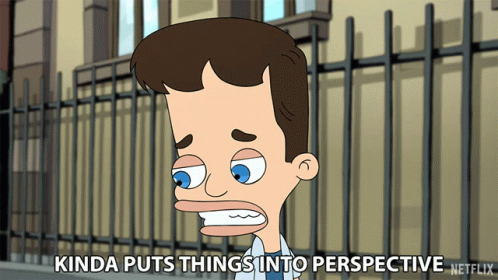
via Tenor
What do you find most rewarding about working here?
Talk about turning the tables! This question not only shows your keen interest but also offers a chance to peer into the soul of the company (no metaphysics degree required). The interviewer’s response can give you an authentic peek into what keeps the team motivated.
More Questions to Consider:
- What keeps you coming back to work every day?
- What’s one project you’re particularly proud of?
How long have you been with the company, and how has it evolved since you joined?
This question does double duty. First, it subtly clues you in on employee retention. If the interviewer has been around for a decade, that’s generally a good sign. Second, their perspective on how the company has changed can offer you valuable context about its adaptability and growth trajectory.
More Questions to Consider:
- Have the company’s goals shifted since you’ve been here?
- What’s the most significant change you’ve observed?
What excites you the most about the company’s future?
Interviewers often ask candidates where they see themselves in five years. Turn it around and ask about the company’s own 5-year plan. It’ll clue you in on both innovation and long-term stability, and it will give you a glimpse of what the interviewer is genuinely enthusiastic about.
More Questions to Consider:
- What projects or initiatives are you personally looking forward to?
- Is there upcoming news that the whole team is buzzing about?
What’s the best career advice you’ve received?
If you’re feeling particularly brave, or maybe just eager to know how to climb the corporate ladder in style, asking the interviewer about the best career advice they’ve received can be enlightening. It’s not only a unique question that sets you apart but one that also opens the door to professional wisdom you might not have encountered otherwise.
Questions to Ask About Leadership and Management

via Tenor
How is employee feedback incorporated into daily operations?
Let’s face it, you want to work in an environment that listens, learns, and leans into improving. If they have systems for gathering and acting on employee input, it’s a good indicator that you’ll be in an evolving and receptive workspace.
Other Questions To Ask:
- Are there regular channels or meetings specifically for feedback?
- How quickly does the management usually act upon the feedback received?
What is the management style here?
You know what they say, people don’t leave jobs; they leave managers. It’s crucial to find out if you’ll be micromanaged or be put in a position to thrive. Ask this question and listen carefully. If the answer sounds like it came straight from a “Management for Dummies” book, beware.
Other Questions To Ask:
- Would you describe the management as more hands-on or hands-off?
- How accessible are higher-ups in the organization?
How are performance reviews conducted?
Knowing the frequency, format, and focal points of these reviews can help you align your goals with the company’s expectations. Plus, it’ll give you a sense of whether you’ll be evaluated fairly and constructively.
Other Questions To Ask:
- Is it a formal structured process or more casual and conversational?
- Are there opportunities for peer reviews or 360-degree feedback?
How are conflicts resolved within the team?
Knowing how conflicts are resolved can tell you a lot about the organization’s maturity and your future peace of mind.
Questions to Ask About Next Steps
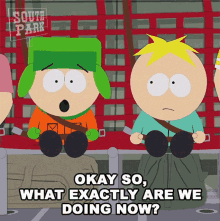
via Tenor
What is the next step in the interview process?
This is the quintessential question that helps you breathe easier. This is basically your polite way of asking, “When can I stop compulsively checking my email every five minutes?” By knowing what comes next—whether it’s another round of interviews, a skills test, or a final decision—you can manage your expectations and anxieties more effectively.
More Questions to Consider:
- Is there a second round of interviews?
- Should I expect to hear from HR or directly from you?
What is your timeline for making a hiring decision?
Consider this the “When can I stop biting my nails?” question. You don’t want to be left in employment purgatory, endlessly refreshing your inbox. Knowing the timeline not only calms your nerves but also informs you when it would be appropriate to follow up without looking desperate.
More Questions to Consider:
- Will all candidates be informed when a decision is made?
- How soon do you typically onboard new employees after making an offer?
Do you have any reservations about my qualifications that I could address?
This question is not for the faint of heart. But the bravery can pay off, giving you a chance to address any concerns head-on and leave the room without any “what ifs.” You want to exit knowing you gave it your all.
More Questions to Consider:
- Is there any part of my application that you’d like me to clarify?
- Do you foresee any challenges I may face in this role?
Can I follow up with additional questions if I have them later?
Sometimes you don’t think of the perfect question until you’re halfway home. Knowing whether you can reach out later to get those burning questions answered could be the cherry on top of your well-conducted interview.
Questions to Ask About Professional Growth and Development
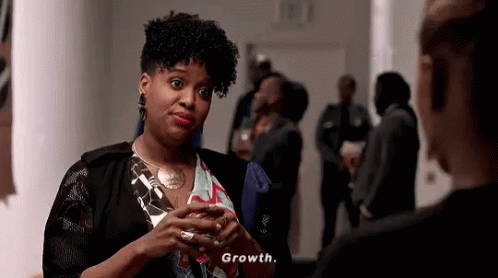
via Tenor
What opportunities for professional development are offered here?
This question serves as your flashlight, illuminating whether the company will invest in your growth or leave you to fend for yourself in the dark corners of the internet. Do they offer courses, seminars, or reimbursements for further education? Or does their idea of development involve pointing you to a YouTube tutorial? Knowing this can make a big difference in your decision to proceed with this company.
Further Questions to Consider:
- Are there any mentorship programs?
- Does the company have partnerships with educational institutions or offer any scholarships for further studies?
What is the typical career path for someone in this role?
Here, you’re looking to see if there’s a staircase to climb or if you’re stuck on a one-floor elevator. If the role has traditionally been a stepping stone to higher positions within the company, that’s a good sign. On the flip side, if the previous occupants of this role are still doing the same thing or have moved to a different company for growth, take note.
Further Questions to Consider:
- How long do people usually stay in this role before moving up?
- Are there any examples of employees who have advanced from this position?
Are there opportunities for job-shadowing or hands-on training?
They say experience is the best teacher, but shadowing someone who knows what they’re doing is a close second. Whether it’s apprenticeships, internships, or just good old-fashioned ‘watch and learn’ scenarios, find out how you can get your hands dirty—figuratively speaking, of course.
Further Questions to Consider:
- Is there a formal training period?
- How are new employees onboarded and brought up to speed?
Questions to Ask About Position Logistics
via Tenor
What does the onboarding process look like?
You’ll want to know if your first day will involve a meticulously organized orientation program or if it’ll be more of a “sink or swim” affair. Knowing this can help you mentally prepare and set your expectations. Will there be an elaborate introduction to the company’s software, or will you be expected to figure out the login credentials yourself?
Related Questions:
- Is there an employee handbook?
- How are new employees integrated into the team?
How much travel is associated with this position?
This will help you align the job responsibilities with your personal life. Maybe you adore travel, and this job will help you rack up those frequent flyer miles. Alternatively, perhaps you’re more of a homebody, and too much travel could be a deal-breaker.
Related Questions:
- Is travel more local, national, or international?
- Are travel expenses covered by the company?
What does a typical day or week look like in this role?
It’s always helpful to preview a day in your life—future edition. Will you be stuck in back-to-back meetings, or does the role require more focused, solitary work? Understanding the daily grind can help you visualize yourself in the position and decide if it’s a good fit for your working style.
Related Questions:
- What does the work-life balance look like for someone in this role?
- Is overtime common or expected?
Questions To Ask About Teamwork and Collaboration

via Tenor
What is the team structure like?
Is the team hierarchical with clearly defined roles, or is it a flat structure where everyone pitches in on everything?
Questions to Also Consider:
- How big is the team?
- Are roles and responsibilities clearly defined?
Is the team’s work more collaborative or more independent?
This is your chance to figure out if you’ll get to deep-dive into tasks with your headphones on, lost to the world, or if the role calls for constant interaction and brainstorming. If you thrive in synergy, a highly collaborative environment will be your jam. On the other hand, if you prefer less noise and more focus, you might be hoping for a more independent role.
Questions to Also Consider:
- Is teamwork encouraged or rewarded here?
- Are there opportunities for cross-team collaboration?
Who will I work most closely with?
Knowing who you’ll be teamed up with can either make you look forward to going to work each day or make you dread Mondays a bit more than usual. This question can also give you insight into the layers of management and reporting structures within the company.
Questions to Also Consider:
- Will I be working directly under a manager or more autonomously?
- Who are the stakeholders for the projects I would be involved in?
Tips for Exiting the Interview
via Tenor
How to Gracefully Exit the Interview
First things first, thank your interviewer(s). Yes, it may seem obvious, but a heartfelt “thank you” is the basic building block of good manners. The gratitude isn’t just for their time, but it’s also for the information shared and the opportunity to potentially become part of the team.
If you want to step it up a notch without venturing into the realm of trying too hard, try this, “Thank you for the opportunity to discuss the role in more detail. I’m excited about the prospect of contributing to such an impressive team and look forward to the possibility of taking the next steps.”
Asking About Next Steps and Collecting a Business Card
Don’t leave the room without some closure—or at least the promise of closure. Ask about what you can expect next in the hiring process. This way, you can mentally prepare for what comes next, whether that’s another interview round, a skills test, or just a period of (hopefully short) waiting.
And while you’re at it, nab that business card. In today’s digital age, it might seem a little old school, but having a tangible object with your interviewer’s contact details can be surprisingly helpful. It ensures your follow-up “Thank You” email doesn’t end up being sent to a generic inbox where it will most likely languish unread for eternity.
Optional Add-Ons
If you’re an avid note-taker, jot down some quick impressions or key takeaways immediately after leaving the room (or even in the elevator). These can be invaluable when you’re composing your thank-you note later on. If you’ve discussed some common interests or memorable topics during the interview, don’t be afraid to mention them as you say goodbye. It reinforces a shared connection and leaves a pleasant aftertaste.
So, when the time comes to say goodbye, make it purposeful. Your interview isn’t over until you’ve left the building, and how you exit can be just as impactful as how you enter. A graceful exit can make for a lasting impression in the minds of your interviewers.
Coming prepared with the right questions to ask during a job interview is not just about making a good impression; it’s a two-way street. It not only shows you’re a serious, prepared, and insightful candidate but also arms you with the information you need to make an informed decision about whether or not to take the job, should it be offered.
The key to nailing your interview – practice, practice, practice.
As with anything, practice makes perfect. The most common ways to practice are with in-person mock interviews or a list of questions. While these options are a great place to start, they can leave a lot to be desired.
Practicing with In-Person Mock Interviews and Question Lists
One way to get valuable interview practice is to set up in-person mock interviews. Unfortunately, they can be somewhat inconvenient. You have to find someone to conduct the mock interview, and schedule a meeting every time you want to practice.
Question lists offer a much more convenient way to practice interviewing. Unfortunately, they do little to recreate actual interview pressure. In a real interview you’ll never know what’s going to be asked and this is exactly what can make interviews so stressful.
Interview Simulators – The best of both worlds.
With interview simulators, you can take realistic mock interviews on your own, from anywhere.
My Interview Practice offers a dynamic simulator that generates unique questions every time you practice, ensuring you're always prepared for the unexpected. Our AI-powered system can create tailored interviews for any job title or position. Simply upload your resume and a job description, and you'll receive custom-curated questions relevant to your specific role and industry. Each question is crafted based on real-world professional insights, providing an authentic interview experience. Practice as many times as you need to build your confidence and ace your next interview.
| List of Questions |
In-Person Mock Interview |
My Interview Practice Simulator |
|
|---|---|---|---|
| Questions Unknown Like Real Interviews | |||
| Curated Questions Chosen Just for You | |||
| No Research Required | |||
| Share Your Practice Interview | |||
| Do It Yourself | |||
| Go At Your Own Pace | |||
| Approachable |
Our interview simulator uses video to record your responses, and recreates the pressure you would feel in a real interview. This also allows your to see how you perform and perfect your responses. You can then share your responses with colleagues and mentors so that you can get valuable feedback.
Get the free training guide.
See the most common questions in every category assessed by employers and be ready for anything.
Get the Guide

